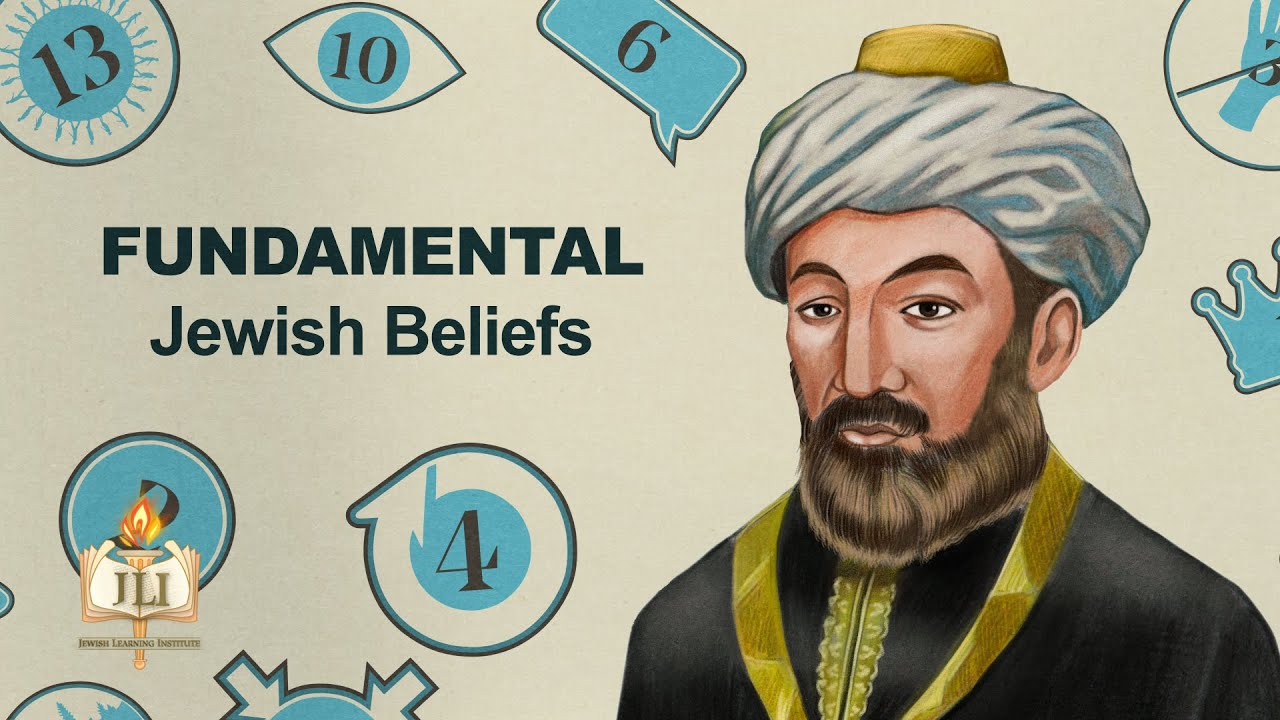✡️ The 13 Principles of Jewish Faith, Explained
🔗 Watch Full Video: 13 Principles of Jewish Faith
📜 1️⃣ Who Was Maimonides & Why Do These Principles Matter?
⏳ Introduction to the 13 Principles
• Maimonides (Rambam) was a 12th-century Jewish scholar who shaped Jewish law & philosophy.
• He formulated 13 fundamental principles of Jewish faith, calling them “Judaism’s foundation.”
• Jewish communities worldwide still recite these principles in prayer.
🔎 Inference: The 13 Principles define Jewish theology, much like the creeds of other religions.
🌍 2️⃣ G-d Exists as the Ultimate Cause of Everything
• G-d is the essence of perfection and the Primary Cause of all existence.
• Everything in the universe depends on G-d, but G-d depends on nothing.
🔎 Inference: Judaism rejects atheism and polytheism, affirming absolute monotheism.
☝️ 3️⃣ G-d is One & Absolutely Indivisible
• G-d is a single, indivisible entity—not composed of parts.
• Unlike other faiths, Judaism rejects the idea of G-d having multiple aspects or manifestations.
🔎 Inference: This principle contrasts with Christian Trinitarianism, emphasizing a singular, unified G-d.
🏛️ 4️⃣ G-d is Non-Corporeal—Beyond Physical Form
• G-d has no body or form—all human-like descriptions (seeing, speaking) are metaphors.
• Anthropomorphic language in the Torah is used for human understanding.
🔎 Inference: This doctrine rejects any human-like image of G-d, opposing beliefs in divine incarnation.
⏳ 5️⃣ G-d is Eternal—Has No Beginning or End
• Nothing pre-existed G-d, and nothing can bring Him into being.
• This principle refutes the idea of an evolving or created deity.
🔎 Inference: G-d’s eternal nature contrasts with deities in mythologies who are born or die.
📖 6️⃣ Only G-d May Be Worshiped—No Idolatry Allowed
⏳ Principle 5: No Worship of Other Beings
• No entity, force, or imagined being deserves worship—only G-d.
• Judaism strictly forbids praying to angels, saints, or intermediaries.
🔎 Inference: This principle rejects polytheism, dualism, and any form of intercession.
🔥 7️⃣ Prophecy is Real, But Only G-d Chooses Prophets
• Prophecy exists, but one must be spiritually prepared to receive it.
• However, G-d alone decides who becomes a prophet.
🔎 Inference: Judaism does not allow self-proclaimed prophets, unlike many other religions.
📜 8️⃣ Moses’ Prophecy is Supreme & Unmatched
⏳ Principle 7: Moses’ Unique Prophecy
• Moses was the greatest prophet ever, surpassing all others.
• He spoke to G-d directly, without visions or riddles.
🔎 Inference: Judaism does not recognize later prophets as superior to Moses.
✡️ 9️⃣ The Torah is Divine & Unchangeable
⏳ Principles 8 & 9: The Divine & Eternal Torah
• The entire Torah—both Written & Oral—came from G-d through Moses.
• It cannot be changed, amended, or replaced.
🔎 Inference: Judaism rejects later revelations that claim to “update” Torah law (e.g., Christianity & Islam).
👀 🔟 G-d Sees & Knows Everything
⏳ Principle 10: Divine Knowledge
• G-d is aware of everything, past, present, and future.
• No action or thought escapes His attention.
🔎 Inference: This principle emphasizes divine omniscience—nothing is hidden from G-d.
⚖️ 🔟 G-d Rewards the Righteous & Punishes the Wicked
⏳ Principle 11: Divine Justice
• Every action has consequences—good or bad.
• G-d rewards those who follow His laws and punishes wrongdoing.
🔎 Inference: Judaism believes in moral accountability, rejecting a universe of pure chance.
👑 🔟 The Messiah Will Come & Lead the World
• The Messiah will be a mortal leader, a descendant of King David.
• He will restore Jewish sovereignty, rebuild the Temple, and bring global peace.
🔎 Inference: Judaism does not see the Messiah as divine, contrasting with Christian belief in Jesus.
☀️ 🔟 The Resurrection of the Dead Will Occur
• In the Messianic era, the righteous dead will return to life.
• They will physically exist in a perfected world.
🔎 Inference: Judaism views the afterlife as a physical renewal, not just a spiritual existence.
🎯 Key Takeaways: Why the 13 Principles Matter
✅ These principles define core Jewish beliefs—similar to creeds in other religions.
✅ Judaism strictly maintains monotheism, rejecting any divine incarnations or intermediaries.
✅ The Torah is eternal and cannot be changed—Judaism does not accept newer revelations.
✅ Messiah will be a human leader, not a divine being.
🔗 Watch Full Video & Learn More: 13 Principles of Jewish Faith 📜







